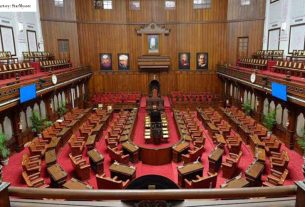Tribal handicrafts and fair trade in danger due to evictions declared by the Supreme Court.
BY SA Gayatri
Bangalore, March 12, 2019.
The Supreme Court has ordered the eviction of nearly ten lakh tribal families from their communities and other forest dwellers across 16 states.
The order came right after a Public Interest Litigation (PIL) was submitted, challenging the Forest Rights Act, which was passed in 2006 by the parliament to give the right to access to traditional forest dwellers, and also to take care of the forests within their given boundaries.
A plea in the case had raised questions that those who cannot fulfil the claims over traditional forestlands are rejected under the new law of eviction. The forest dwellers failed to prove that they have the right to stay in the forest and to continue their indigenous occupation, as supported under Forest Rights Act.
On February 13, the Supreme Court rejected the instances of lakhs of forest dwellers remaining under Scheduled Tribe and other traditional dwellers to restore their rights under the Act. According to the reports of the forest department, three states –Madhya Pradesh, Karnataka, and Odisha are responsible for 20 per cent of the total claims of land ownership which has been already rejected.
As per the Planning Commission of India, the main objective for fair trade of Indian Tribal Art is to serve the interest of its members in order to protect them in the field of marketing and development. The main reasons of fair trade are to ensure the development of the tribal communities, to expand their market, and to create a network for them to communicate through their art.
Banda Ram, a forest dweller and a member of the tribe Bhil Garasia, says,” It is sure that we will be sent to the nearby cities, my prime occupation to collect fodder in the forest will be gone. I don’t know any other occupation. “
“I have to support my family of seven members. The government told us that we are supposed to find a livelihood, but what will we do in a place where we cannot speak the language, cannot understand the quality, and the way of living of other people? We can’t get accustomed, and also, there are many people who make handicrafts. People from cities come to visit, and in the name of fair trade, they take our products and sell them in the market. But, what will happen once we lose our homes? How fair is the trade actually?” he added.
According to the Know India website, the main livelihood of the tribes is hunting, poaching, collecting firewood, and fishing. Once they are evicted, they may turn into rickshaw pullers, might have to sweep, and turn into manual scavengers.
The arts of the tribals are Thanjore and Madhubani, which are made of rubber, wood, and metals, and Warli folk paintings. All the handmade arts are high in demand in the Indian market. However, if these dwellers are displaced, their art and livelihood will be hampered as they cannot get the materials from the forests.
The tribes live in huts made of mud, fodder, and wood. If they are put in houses built with bricks that include city amenities, it would be hard for them to get accustomed.
The Supreme Court has put a hold and directed the states to complete the eviction of the forest dwellers and other tribal members who could not prove their claims and the ones which were rejected.
Padmanabha, Section officer, Ministry of Tribal Affairs, says,” The decision is still on hold; the centre wants to look into this matter holistically and is in the interest of tribal farmers, and forest dwellers’ development. The fair trade of these communities might get affected because they could not prove their claims. “
Mallikarjun Iytha, President, Fair Trade Forum “We work with almost 70,000 villages, mostly tribal people; the issue raised is very relevant but it is not so simple to resolve it. People say we should mainstream tribes but the actual fact is they are the mainstream “.
“If we look at their sustainable lifestyle, culture, and how the technology world is reaching them, fair trade ensures that they are provided with opportunities, but, without hampering their livelihood and culture. There is a tribe in Odisha called Anvesha which make jewellery and who started selling their designs in the local market – today they make nearly eight crores a year which goes to them through fair trade“.
“But it is very true that the displacement will certainly affect the trade and also their livelihoods. The organizations are planning to come up with many other solutions to help them in terms of money and market,“ he added.





